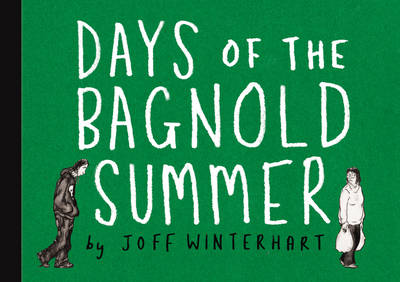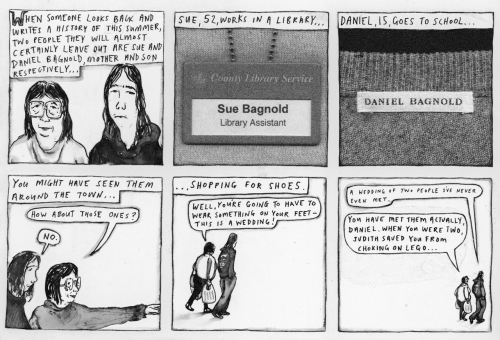Talulla Rising - Glen Duncan
'the dirty truth'
Glen Duncan's conscious decision to write a commercial novel after years of writing literary fiction that 'not enough people bought...and...didn't win anything' resulted in last year's guilty pleasure, The Last Werewolf. In fact there's nothing to feel guilty about, it was simply a very nicely written treatment of the werewolf myths involving vampires, government killers, plenty of sex and a narrator whose centuries of lifetime leant him an entertaining voice as likely to turn to works of great literature for sage advice as his years of hard-won experience. One commercial decision follows another with the publication of this sequel (which in discussing I am bound to include *SPOILERS* to anyone yet to read the first) and if the first book was about the discovery that you are not alone (in other words about falling in love) then this follow up, in which the baton has been passed from Jake Marlow to the now pregnant lycanthropic object of his desire Talulla Demetriou, is a very odd take on losing love, finding it again, and motherhood.
Quick recap then: despite its title Jake discovered in the first book that he wasn't the last of his kind and even more, that his life as a werewolf could reach whole new heights with a partner with which to share the pleasures of fuckkilleat (yes, Duncan may be writing a commercial novel but that doesn't mean he has to put his trademark dark and dirty perspective on hold - on the contrary: monstrous behaviour deserves to be examined in all its filthy glory). But despite having the ability to live for about 400 years, time was not on the side of these new lovers and the chase from vampires looking to harness something in werewolf genetics that might allow them to walk in daylight, as well as the hunters of 'occult phenomena' left Marlowe dead and a pregnant Talulla finally assuming the position of the book's title. Except of course for those unborn babies...
The sequel picks up Talulla's story in the remote seclusion she has sought as her due date approaches. That quiet is shattered in the most spectacular fashion, a perfect storm of lunar activity, early labour and vampires. At the end of this her son has been abducted and what follows is driven by her need to get him back. But Duncan, keen pursuer of the perverse, doesn't give Talulla the natural animal instinct and connection that we might expect with her offspring. In fact he chooses to show how difficult she finds it to make that connection, how unnatural that bond is or how difficult it can be for any mother who doesn't find themselves feeling the magical connection they have read so much about. The last thing you might expect from a werewolf novel is an examination of modern mothering anxiety but it is most definitely in there.
Expect the absurd, Jake had warned me. Expect the risible twist, the ludicrous denouement. Expect the perverse. It's the werewolf's lot.
Jake's aphorisms are dotted about the book, Talulla is a relatively new werewolf of course and she is still learning the ropes. We might expect her to pine away for her lost love as well as her abducted son but Duncan knows that desire is a far stronger force than we might like to admit and when coupled with the extra charge of lycanthropic desire it isn't long before Talulla feels the need once again.
We looked at each other. The attraction was a stubborn softness between us. It was also the first sexual honesty I'd felt in months. It didn't mean he wouldn't kill me or I wouldn't kill him. I thought: all men and women should start from that understanding.
Duncan has always been brilliant on relationships, on their darker sides, and he has a lot of fun with a new cast of characters. He also probes some very dark territory, places which he has visited before with his novel A Day and a Night and a Day which looked at torture. Talulla is imprisoned at one point in a facility where doctors and scientists want to test the lycan's abilities to heal and regenerate. It's pretty gruesome stuff beginning with simple procedures and building up to full-blown amputations and the sense of horror is grimly realised. Another character is subjected to brutal beatings and sexual abuse and Duncan isn't afraid to show the legacy of this kind of treatment, the damage it does long after wounds have healed. Beyond that he allows Talulla, even whilst she is being defiled, to say the unsayable about her own behaviour, the crucial difference between those that desecrate her own body and her own monstrous desires.
It's only the best for us if it's the worst for them. Unlike the men in white we, monsters, wanted the person we were killing to know - through the blood-blur and the din of their own screams - not only that we knew what we were doing but that we loved doing it. We wanted our victims to see that our pleasure increased with their horror, that the horror was required, that their situation was hopeless. That was the dirty truth, the obscene heart of fuckkilleat: their hopelessness serviced our joy. In the court of human appeal the scientists were better off. At least they weren't doing it for fun. At least it didn't turn them on.
This is a book I read at quite a lick and didn't find myself making many notes on as I went through. It is an enjoyably dark thrill with enough extras to keep the more literary side of my brain relatively happy. There's no doubt that Jake with his experience, tone and literary brain was a more satisfying narrator, I may well have missed him more than Talulla herself, but with the story entering into a series of books I guess I have to accept that plot will end up dominating proceedings I will look forward to the third and final part when it eventually appears and can only hope that those who have been subsisting on a diet of tired genre staples might be tempted towards trying something a little meatier.
Read more...












